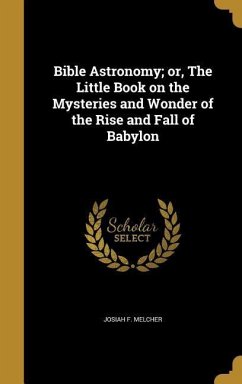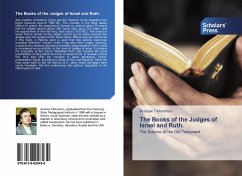
Book One and Book Two of Paralypomenon
A scientific line explanation of the Old Testament
Versandkostenfrei!
Versandfertig in 6-10 Tagen
35,99 €
inkl. MwSt.

PAYBACK Punkte
18 °P sammeln!
Paralypomenon translated from Greek "repetition, supplement". The 3rd and 4th books of the kingdoms resonate with the First and Second books of the Paralypomenon, they trace the history of the dynasty of David from his first days on the throne to the overthrow of his last successor by the Babylonians. Although the books of the Paralypomenon describe the entire period of the divided kingdom, this historical period is considered from the perspective of Judaea. The Jewish title of these books is Dibre Gay-Yami, which can be translated as "Chronicles, Acts of Times, Chronicles", for Catholics - I ...
Paralypomenon translated from Greek "repetition, supplement". The 3rd and 4th books of the kingdoms resonate with the First and Second books of the Paralypomenon, they trace the history of the dynasty of David from his first days on the throne to the overthrow of his last successor by the Babylonians. Although the books of the Paralypomenon describe the entire period of the divided kingdom, this historical period is considered from the perspective of Judaea. The Jewish title of these books is Dibre Gay-Yami, which can be translated as "Chronicles, Acts of Times, Chronicles", for Catholics - I and II Chronicles. From the point of view of priests, the Books of the Paralypomenon were compiled by Ezra in the 5th century B.C., from the point of view of science the books were compiled by Jewish priests around 300 B.C. The penitential noncanonical prayer of Manasseh, King of the Jews, when he was held captive in Babylon, included at the end of Book II of the Paralypomenon, dates back toChristian times and is widely used in the Orthodox cult. The Septuagint contains 2 Chronicles, originally it was one book.












